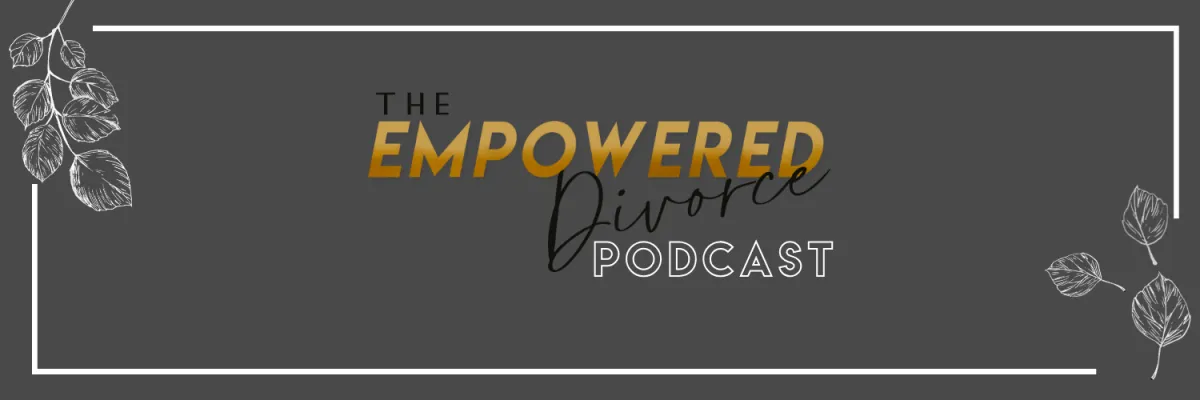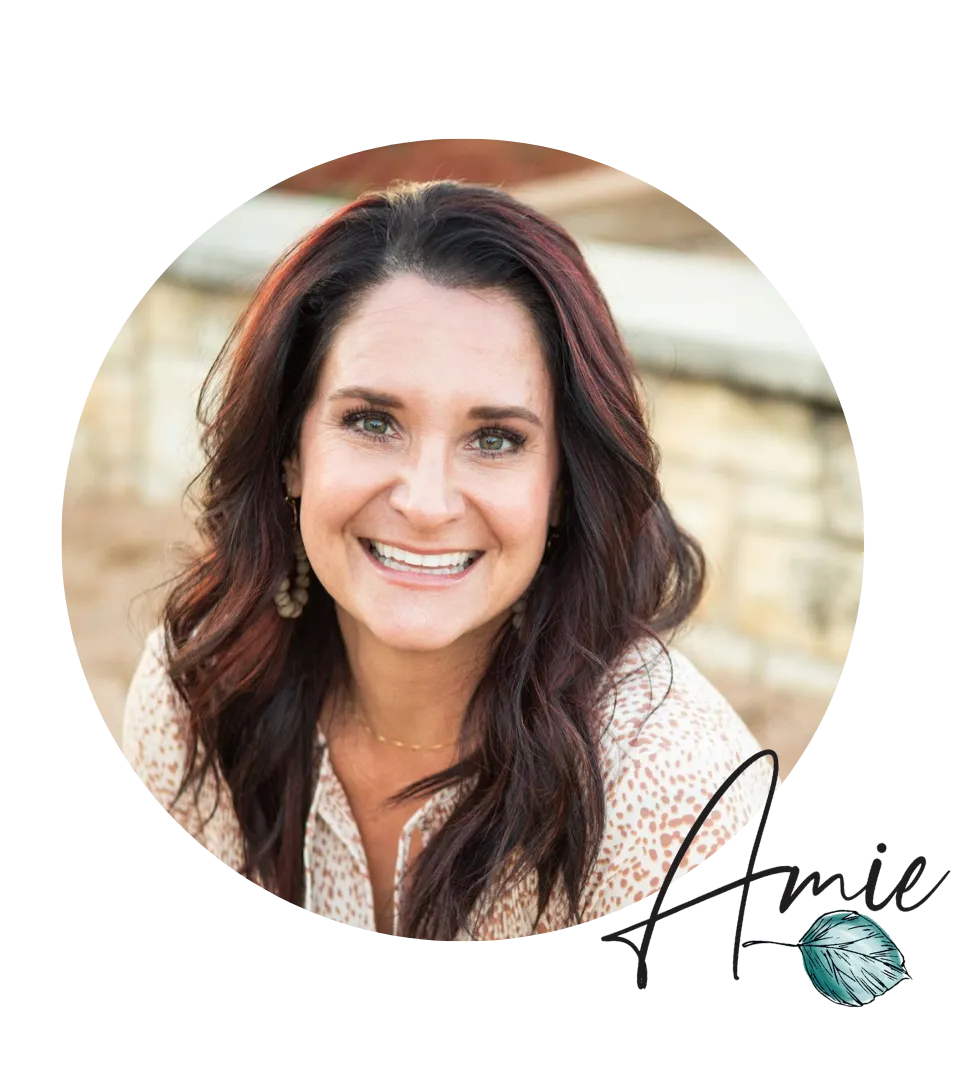
Empathy; How to protect your empathy after betrayal
You are someone who notices everything, who feels what other people feel, who carried the weight of your marriage, always trying to fix, soothe, make it work. This episode is for you where many of you empathy becomes survival. But it also becomes a trap. And now you may even hate that you are so empathetic.
It can feel like a flaw instead of a gift. But what if I told you that your empathy isn't the problem?
It's what happened to it in the wrong hands.
Read Full Transcript
Hello? Hello, my amazing, beautiful listeners. How are you today? Thank you for joining me. Thank you for being here. Thank you for clicking on. The summer is wrapping up and it is time to think about perhaps back to school. maybe you're feeling that desire for fall to come. I know I am. It has been a very hot. Wet, humid summer in Texas. Before I get to the topic today,, I wanted to just again, thank those of you who have left reviews on Apple Podcast, or those of you who have hit the follow link on any platform.
Those of you who share this with others who feel as if they are having a different kind of divorce than everybody else and just need to feel heard, and need to feel validated. Please if you haven't followed, liked or left a comment or left a review, please do so as it helps spread this podcast.
And I just wanna keep this free resource going for everybody. So if you can hit pause and take time to just hit the follow button or leave a quick review, it would be much appreciated.
I also want to mention that if you are not receiving the monthly newsletter from me, you can do so by going to the link in the show notes or go to amy woolsey.com. A lot of those resources, announcements all get shared in that newsletter. Plus, I always like to give journal prompts or tools that you can use to practice, that help you in your healing journey.
So be sure to sign up for that. As well. And if you are interested in the next dating from within, also head over to the link in the show notes or amy woolsey.com and right now if you're just interested, when the next one starts, you can register and when that date is set, you will get an email notifying you of that next workshop.
Okay. Now, I used to be an over empath. I know not a real word, but it should be the psychological term for what I was doing is actually unregulated affect empathy, which basically means I wasn't just understanding or noticing someone's feelings, I was absorbing them. I took them on as my own. I didn't have a filter.
I didn't have boundaries. I just felt everything. And for a long time I thought that made me good. I thought it made me loving. I thought it made me valuable in a relationship. But here is what I have learned, especially after going through the trail and the kind of horse that turns your entire nervous system inside out.
Empathy without boundaries becomes self abandonment. in today's episode, we are talking about what it really means to protect your empathetic nature when it has been or is being used against you when your beautiful, tender heart has been trampled on, taken advantage of Or you have been made to feel like you are the problem just because you care.
This episode is for you. I recently had a lady who is back into the dating scene and she asked me very sincerely, is it too much to ask for the person that I'm dating to have empathy for me when I'm triggered? so even if you're in that space right now, this episode is for you. And first of all, the answer to that question is a hell yes.
You absolutely get to expect empathy. Whether or not you get it is another story and you can't control that. However, I'm hoping, hoping, hoping that by the end of this episode you understand a little bit better about what it can look like to have to swing away on the other side of the pendulum with empathy.
How to balance that out, what that actually looks like, and how to bring that into the next chapter of your life and what really owning, really standing in a healthy space,
more in the middle of that pendulum As you navigate relationships, not even just romantic relationships, but as you navigate relationships in the future. So first I wanna break it down. There are two types of empathy. Yes. Two.
I wanna talk about how being over empathetic shows up in relationships, especially with abuse or emotionally immature partners. Most importantly, how you can start to reclaim empathy as a superpower again, but, this time your empathy is gonna be rooted in your secure self. Now, the two types of empathy, because not all empathy is the same.
Understanding the difference can be a total game changer, especially if you are someone who feels everything and has no idea where your emotions end and where someone else's begins. The first kind of empathy is called cognitive empathy. This is like your brain saying, okay, I see what you are feeling. I can imagine what that might be like.
It's awareness, cognitive empathy is understanding. It's like looking through the window at someone else's emotional experience and going, ah, I get it. But there's that window that you're looking through, then there is the affective empathy According to Brene Brown, affect affective empathy is what allows you to connect heart to heart. It's the visceral me too feeling, and it can be incredibly bonding. But here's the thing, when you have trauma, anxious attachment grew, up in emotional chaos, then the affective empathy can go into overdrive.
So you don't just relate, you merge. you start to absorb the pain of the other person instead of just witnessing it. As you're looking through the window, you become the emotional sponge in the room, and so you are feeling what they feel, but you forget to feel yourself. It's like falling into their emotional pool without realizing that you don't even know how to swim.
Here's the part that hits home for so many of us, if you've been in a destructive relationship or emotionally unsafe relationship, then your empathy likely became a survival tool. You needed to know when your partner was about to explode.
You had to read the room before you walked in. You were constantly turned. Into their emotions because it was safer than turning into your own. That's not just empathy, that's hypervigilance. wearing empathy's mask, and so eventually it's gonna wear you out you start feeling like empathy is the problem.
Like maybe you just care too much. Maybe if you were less soft or you weren't, then you wouldn't keep getting hurt.
Again, affect of empathy is not bad. look at, think of the pendulum. It's when we swing way on the other side of the pendulum. Again, we're in that survival mode, so when you have that anxious attachment.
when you're in that destructive relationship, emotionally unsafe relationship, your beautiful empathic nature is going to get hijacked. you take on the blame you feel responsible for their bad day, you soothe you, fix you over, apologize. Even when you are the one that's been hurt.
And so over time it wears you down. it makes you feel like your empathy is the problem.
So if you're someone that's felt quote, too much, cared, too much, Become too much trying to hold your relationship together. You are not broken. You just haven't been taught how to have boundaried empathy yet, that's what we're gonna explore Next. now that you know the difference between the cognitive and affective. The difference between understanding somebody's emotions and absorbing them into your own nervous system. I wanna talk about what I see all the time with women I work with because this right here is at the core wound for so many of us.
Empathy didn't just become something we did, it became the way that we survived. And I mean, literally you didn't just feel emotions deeply. You were constantly scanning the room, reading the air, sensing the shift in someone's tone or expression, you most likely became an expert at adjusting yourself to keep the peace.
Again, not because you're weak, but because your system learned that this was the safest way to avoid a fallout. That's not softness, okay? That's survival. That's not. A peacemaker, that's survival. That's not avoiding contention, that is surviving. I just wanna name a a couple common ways that I see this show up. I think it'll be helpful for you. To self-identify, but , the first way that I see this often show up is the over-functioning, where you become that emotional regulator for everybody around you.
You did the work for two people, always the one to initiate maybe the hard conversations, maybe manage moods, absorb tension. You might have told yourself, Well, I can handle it or I can remain calm, I can take it, whatever. That was. What was really happening is that you were carrying the full weight of that emotional labor in a relationship that takes two people and then you were calling it love.
I am just being loving. I am just being caring. I am just being patient. But you really were are the one that is over-functioning. That relationship, it is not equally yoked. The second way that I see this show up is the hypervigilance and again, disguised as empathy. You know the exact tone of the voice when the day is starting to go sideways.
You knew by the way that he puts his keys on the counter whether to brace yourself or breathe. You noticed everything because you had to. That wasn't just empathy. That was your nervous system working again over time to stay safe. the other way this shows up is that loss of boundaries or lack of boundaries. So maybe you felt their pain so deeply that you abandoned your own.
I hear this a lot with my couples when there's been a discovery or disclosure of, of sexually acting out behaviors in one form or another. And when the betrayed partner confronts, Oftentimes what happens is that person, that other partner who did the betraying, They're hiding pain that they have experienced oftentimes early in childhood. So I'll hear this a lot with my betraying partners, where they have had sexual harm done to them as a child, and they've been hiding it. They've been keeping it secret. This tends to come out when they've been found out or caught in their own betraying behaviors.
Well, at that point, what often happens is that the one who's been betrayed feels the pain of that person's past pain so deeply. All the pain that they are feeling from their own betrayal, from that partner. Real time now gets shoved under the rug now gets set aside and now we're just attending to that partner's pain.
Oftentimes for months, even years, I've seen this go on where that pain doesn't get addressed. It gets shoved aside, put on a shelf, whatever analogy you want, metaphor you wanna use, now it's this massive empathy for the pain , that the other partner experienced.
Is not a bad thing, but when there is no boundaries. So the, the lack of boundary here is that my pain, my injury that you just created is now set aside, is now by the wayside. Now we're not even addressing it. There's no restitution, there's no repair, there's no empathy from the other person.
We're your pain. Now without boundaries, excuses are made, minimization happens, rationalization, forgiveness without repair because you felt for. Them, even if they never really showed up for you. And so here's the hard truth that I had to face myself. That was not empathy. That was emotional. Enmeshment dressed up as empathy.
those of you who can relate, you weren't being empathetic because you were weak. You were being empathetic because you had to survive. You didn't know yet that you were allowed to feel for someone without carrying it all for them and without diminishing and discounting your pain, your experience.
And this is where I see so many women get stuck because once they realize this, they think they have to stop carrying it all together or go cold or shut down, or even feel ashamed of how deeply they care. You don't have to stop being empathetic. You need to learn how to protect your empathy. So it becomes a gift.
Again, not a wound. I wanna talk about how to do that. Really, truly, those of you who have the ability to empathize so quickly, so easily, so beautifully, it really is a gift. We just need to bring it back to the middle of that pendulum. Now that we've named Empathy got tangled up in survival, I wanna just take a deep breath and I wanna invite you to place one hand on your heart, and maybe even say this out loud.
My empathy is not a problem. My empathy was not the problem. My empathy is a gift. I just haven't been shown how to protect it. Take time to say that out loud for yourself, because here's what I want you to hear next, and I mean this with everything in me. Empathy is a superpower through empathy.
When it's anchored in secure sense of self is magnetic. It's healing. It creates emotional safety, intimacy, connection, attunement, all of the wonderful, beautiful things that happen in a relationship that make a relationship. I think last. When you have someone in a relationship that has this superpower,
it's matched with someone that honors respects, values, that empathy, that doesn't a abuse it, that doesn't take advantage of it, that doesn't weaponize it. It can be an incredibly beautiful relationship, but just like any superpower, it can be misused and when it's being hijacked by trauma or overused in unsafe relationships.
It starts to feel more like maybe a curse in a gift. here's how I like to think about it. Empathy is like electricity. It can light up your whole house or it can start a fire and burn everything down. The difference whether or not the wiring is grounded, that's where boundaries are. That's what Secure Self does. It's the grounding wire that lets empathy flow through you without overwhelming you. You don't have to shut it off. You don't have to harden your heart, and you don't have to stop caring. You just have to stop leaking empathy toward people who only take Those of you who are.
Scared to date, don't wanna date, who are in this space of like, How no am I ever gonna share my big, beautiful heart with anybody again? Because it got taken advantage of yes, because it was with someone who only takes the truth is that you can feel for someone without fixing them. You can understand someone's pain without absorbing it you can hold space for someone without having to hold the damn relationship together. This is where you get to reclaim your empathy, not as a survival strategy, but as your sacred strength I really hope that you can hear that. Okay. Let's talk about what this actually looks like. How, okay, right. What does this actually look like? How can I keep my empathy mind and use it wisely? Especially around people who have shown they cannot care for your heart in return. So let's say that's where you're headed towards empowered, grounded, beautiful empathy.
But how do you know when you are not there yet? How do you spot the signs that your empathy is leaking or being used against you? First, let's talk about what unhealthy empathy can look like, because I promise if any of these that I'm about to to share hit home for you. Number one, you're not alone. These again, are those survival patterns, and you adapted this way for a reason.
So maybe, Maybe you felt responsible for your partner's emotions. Maybe you feel responsible for your children's emotions for other people in your life. If you feel responsible for other people's emotions, like if they're upset now, it's your job to fix it, make it better even, and especially if you didn't do anything wrong.
Maybe you apologize when you are the one who's hurting you, minimize your pain just to keep the connection alive. This is how you fix it. This is how you make it all better. You just gonna apologize. It's easy for someone like you to apologize because you can see how someone else might also be hurt, but you're minimizing your pain.
And again, a lot of times this comes from that anxious attachment because we're just trying to keep that connection alive. Maybe you stay quiet to keep the peace, you convince yourself it's just not worth the fight. I'm just choosing my battles, but really resentment's building because it's chipping away at your truth, your experience, your voice every single time.
Maybe you forgive too fast without. Real repair or without any repair. You just tell yourself that you're being the bigger person, but really you're bypassing the pain to avoid, again, maybe abandonment. Avoid that connection from from not being there for you. I see this a lot with spiritual bypassing, sometimes forgiveness.
Under the umbrella of Christianity, we spiritually bypass our pain in the name of Being Christ-like or being again, the better, higher person, your pain is still gonna be there. And again, I see resentment oftentimes start to really build With this kind of over empathizing, maybe you read between the lines instead of trusting behavior. So that looks like you, those of you who have been in my dating workshop, you've, you heard me say this, we don't date potential. If you read between the lines, instead of trusting behavior, you're gonna clinging to potential, clinging to the words.
What could be. While you're ignoring what's right in front of you, what their feet are or are not doing. These different ways of showing up is not empathy. These are trauma responses in disguise. This is empathy without boundaries, and it all becomes emotional self neglect. Here's the shift.
Okay? Always, always gonna talk about the shift. How do we shift from being way on the other side of the pendulum more into the middle? First, let's talk about what it means to practice boundaried empathy. This is such beautiful healing work, y'all. This is where you really start to take your power back, and it starts with truth, the truth that you are allowed to care.
You are also allowed to protect your peace. So practical things that you can start doing today. First, Imagine a shield around your body. It can be a clear bubble, it can have a color to it. Be creative, whatever you want, but you have this shield around your body. One that lets love flow in.
But keeps out what isn't yours.
This reminds me of a quote that beautifully echoes this truth. One that hit me really hard when I heard Jill Bolt Taylor , reflect on her stroke recovery in a conversation with Oprah Winfrey.
Actually, first of all, Jill Bolt. Taylor wrote the book, my Stroke of Insight, but she was on Oprah talking about this, and she said, please take responsibility for the energy that you bring into this space, into my space. I. It was this aha moment where, oh, it's the responsibility of other people for the energy that they bring into my space.
And she realized this when the nurses , who walked in her hospital room carried with them their energy and she felt all of it, whether supportive energy or draining energy. Here she is laying in bed. She can't talk, she can't communicate. She just had this stroke. Because she was using the right side of her brain.
'cause the left side of her brain is the one that had the stroke and shut down. She could feel and sense the energy of everybody so intensely. She was way on the other side of that pendulum. And so she said the simple shift of awareness changed everything for her because she realized. That people are 100% responsible for the energy that they bring into her space.
Okay, so why does this matter for you as an empath? Because when you are wired to feel so deeply, and especially when your empathy has been weaponized, this quote is radical. It's a radical shift. It's a radical change. It reminds you that you don't have to absorb someone else's energy. They're not responsible for carrying their emotional baggage.
It's permission to say, I'm responsible for my energy, and you are responsible for yours. It calls you back to that agency that I talk about all the time, the power to decide whose energy you let in and whose you don't. You get that choice. you can do this and put this into practice by doing an energy check-in before stepping into.
Relationship or conversation. Ask yourself, what energy am I bringing right now? And then after the conversation, what energy did I absorb? I will tell you right now, just, I'm gonna give you three different things to, to practice, but this nu no, this one right here has been a game changer for me. So if you don't practice the rest of these that I offer, at least practice this one before you enter, before you pick up the phone to call somebody.
Before you meet somebody for lunch, before you go on the date, before you have a conversation with your ex, before you step into a conversation, check in with yourself. What energy am I bringing right now? What am I feeling? I do a body check every single time. It doesn't have to take long, and I've practiced it enough that it doesn't take hardly any time at all to do an energy check.
I personally like to give it a color. What energy color do I resonate with right now? Then after the conversation, or sometimes in the middle, I actually do this oftentimes in the middle of a conversation because I notice a shift in me. What energy did I just absorb? Name it, recognize it, and then what I do is in my mind, I slowly zip that bubble up again, that shield.
I protect my energy and I slowly push back what isn't mine? the second thing you can do to practice is set those energetic boundaries. Visualize that soft, clear shield or light filter, whatever you want. that lets an empathy with choice. it's using that mantra.
I take responsibility for my energy and nothing else and no one else's Third thing you can practice is that when you absorb too much, 'cause sometimes it happens. It's okay. When you do notice the physical signs, do you get tightening in your chest? Do you have a shallow breath?
Do you hold your breath? Is there a stiffness? Do your shoulders go up towards your ears? You. Does your chest start to concave? What is that physical sign for you? When you start to absorb other people's energy, other people's emotion, pause and ask, is this mine or is this theirs? Ground yourself. Will your toes shake it off and reclaim your center?
Protecting your peace does not make you cold. It does not make you less authentic or vulnerable in that conversation.
It makes you wise. It makes you emotionally regulated. It helps you stay in that window of tolerance. It helps you stay out of fight, fight, freeze, fawn response. It is, it is not mean to care for yourself. It's courageous. It really takes a lot of cur courage because yes, fear is going to show up when you're practicing this.
The fear. Of being misunderstood, of being too much, not being enough, because I'll be honest, when I started practicing this, it felt like I was not the same person. And those people in my life, who I've kept in my life, who are used to me showing up, swinging way on the other side of that pendulum, and being an over empathizer, over-functioning in the relationship, not having boundaries, not having boundaries, maybe even over my time in a conversation.
They're used to that. when I did start to have boundaries and showed up differently in a different energy, it was misunderstood. But look, here's the thing. The people who wanna be in my life truly want to be in my life with the me that I am today. They understand. They don't get defensive, they don't use.
Who I am and how I'm showing up against me. And those people who have the boundaries got a lot tighter. There's not as much communication, if any, those who think I'm not showing up the way that they want me to anymore because they're so used to me, again, over functioning in the relationship and now I'm just not caring enough. Look again, I, it hurts to be misunderstood. It really does. It's not fun. It's not fair. It would be wonderful to be able to have a mature conversation and be able to be understood and seen.
For what I've learned and what I'm practicing now in my life, the people that have heard me, the people that want to be in that relationship with me, they still are.
They value my energy. They value my time. They value my voice. They value what I'm doing for myself in my life because the reality is they're doing their own life. They're, they understand that they're responsible for their own experience in the relationship with me. They don't need me to hold that whole relationship together anymore.
Again, this was really challenging. There was some cognitive dissonance as I was practicing this because it did feel uncomfortable. It didn't feel like I was again, being for me, it felt like I was being mean or I wasn't being as giving, or I wasn't being as open really, I was being boundaried. I was stepping out of that over-functioning.
You've heard me talk about this before with your central nervous system, when it lived in survival mode, it was so used to that old blueprint, that old blueprint was the over-functioning, the no boundaries, the hypervigilance. So in order to not bring that old blueprint to a new relationship, and I know those of you who want to move forward and have another relationship potentially, yeah.
Don't wanna repeat the behavior, you don't wanna repeat the things. This is how we don't repeat the things. You have to change your blueprint. It is not a comfortable experience changing your blueprint. It is going to feel weird. You might not feel like quote you because the you that showed up in those old relationships, in those old patterns was not healthy, was not securely attached to you.
It was unhealthily attached to the other person. It was enmeshed. So really give yourself grace and space to practice this slowly and safely and allow yourself to grieve those relationships that don't make it through, not because of you, because they aren't doing their work.
I had a therapist tell me years ago she says, Amy, you're outgrowing your relationship. You continue to do this work, you continue to to work on you, and your partner isn't working on them. You will outgrow them. And I did. The person you wanna be in a relationship with isn't doing their work. You will continue to outgrow them if they don't do their work.
And it happened. That person did not choose to continue to do their own work to create their own healthy attachment. It continued to look to me to be the one to carry the bulk of that relationship, and the relationship is no longer. And I grieved, and I grieved and aggrieved. So make space for the grief, but I am no longer willing to compromise my secure attachment, my self worth.
My boundaries, my emotional energy, my emotional stability, my needs, and I'm certainly not willing to risk me abandoning myself. I'm not willing to risk showing up in a way that really isn't me anymore. I'm really not willing. To compromise my values, to compromise what I feel like I deserve in a relationship. I'm not willing
to abandon myself anymore. I'm not willing to say yes, what I really mean. No any more. I'm not willing to hold my breath in conversations because if I breathe and speak up, the conversation doesn't go well. It turns into contention. If I have a voice, if I have an opinion, I am no longer willing to
minimize me, rationalize away safety anymore, and if that means that some relationships need to complete themselves Then I've been willing to accept hat dramatically accept and grieve that.
So let me leave you with this. Number one, you're allowed to protect. You're allowed to protect your attention, your nervous system, your inner child, your truth, your energy. You can be both soft and strong. You can be empathetic and empowered. You can be caring. Clear. Your empathy was never the problem. It was just looking for , a secure home to live in.
And now please let that home be in you. Empathy is not permission for people to harm you. It's a mirror, not a doormat. Your empathy is not weakness. It's a compass. Only when you are the one holding it, you are the one that watches the direction that that conversation takes. You are the one that keeps that energetic bubble , shield whatever you want it to be.
I think of Violet from the Incredibles. How she, her superpower is that shield that she just, she like puts her hands out to the side and boom. That shield's up Y'all. That is what I envision in my mind when I am putting my shield up before I enter a conversation with somebody.
I imagine that superpower bubble going up and is protecting my space. You get to do the same. It is available. It is available to you. if you've ever felt like empathy betrayed you, maybe it's just been waiting, waiting for you to choose where it goes. To choose who it serves and how it gets to live in a world from now on.
Because you are the creator in your life, and you get to choose the energy that you absorb, the energy that you put out, the energy you protect, you get to choose that because you can't take care everybody.







Facebook
Instagram
Youtube